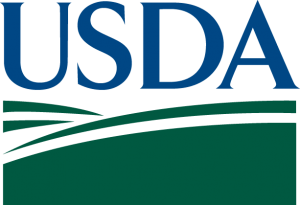 The U.S. Department of Agriculture has announced an investment of $9.5 million to support the scale-up of sustainable bioproduct manufacturing in the United States. Three successful projects are funded through USDA’s National Institute of Food and Agriculture’s Bioproduct Pilot Program, which funds research and development of value-added products from agricultural commodities.
The U.S. Department of Agriculture has announced an investment of $9.5 million to support the scale-up of sustainable bioproduct manufacturing in the United States. Three successful projects are funded through USDA’s National Institute of Food and Agriculture’s Bioproduct Pilot Program, which funds research and development of value-added products from agricultural commodities.
Authorized and funded by the Infrastructure Investment and Jobs Act, the Bioproduct Pilot Program presents a unique opportunity to spur economic activity in the nation’s rural areas while lowering commercialization risks associated with bringing biobased products to market. The program’s exploration into bioproducts accelerates USDA’s efforts to develop circular bioeconomies, where agricultural resources are harvested, consumed, and regenerated in a sustainable manner. This pilot program also supports the objectives outlined in President Biden’s recent Executive Order on Advancing Biotechnology and Biomanufacturing for a Sustainable, Safe, and Secure American Bioeconomy.
“Adopting a more circular economy ensures that wealth and other economic benefits in the form of jobs and other opportunities are created, and stay, in rural communities,” said Agriculture Secretary Tom Vilsack. “We must support and incentivize practices like these, because it’s what consumers want — and what farmers, and our planet, need.”
The three awardees are:
- Virginia Polytechnic Institute and State University, for a project that proposes to convert food waste into biodegradable, polyhydroxyalkanoate (PHA)-based bioplastics that can be used for a variety of consumer plastics, including flexible and rigid packaging and containers for food and beverages.
- University of Illinois Urbana-Champaign, for a project that proposes to convert swine manure and other organic feedstocks into biobinders for asphalt that increase the quality of recycled asphalt pavements. If commercialized, benefits include reduced landfill waste, reduced disposal costs for asphalt and food waste, and low-cost products.
- Soylei Innovations, of Ames, Iowa, for a project that proposes to transform high oleic soybean oil into thermoplastic rubber for pavements, which has the potential to extend repair longevity for existing surfaces. Low-cost paving solutions are particularly important in rural and underserved communities where road paving and maintenance budgets are underfunded due to a reliance on local tax revenues.
“Each of the recommended projects includes collaborations with universities and companies that can bridge the gap between invention and the marketplace as well as produce stronger and more effective outcomes,” said Dr. Dionne Toombs, acting director of the USDA National Institute of Food and Agriculture, the agency administering the awards. “All three of them also have compelling benefits that advance environmental justice and spur economic opportunity for underserved communities.”
Passed by Congress and signed into law by President Biden in November 2021, the Infrastructure Investment and Jobs Act is a transformative, historic investment for America to rebuild the physical infrastructure of our country, grow the economy for decades to come, create good-paying union jobs, and better position the United States to compete in a global economy.
For news of interest to the food and beverage industry, subscribe to Gourmet News.

